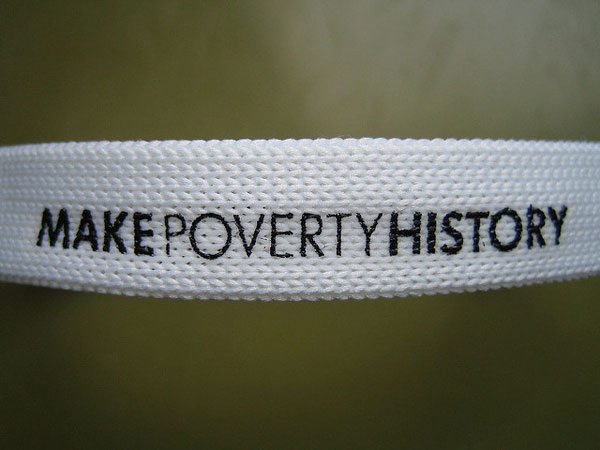
April 10, 2018; Common Dreams and the Associated Press
Across the political spectrum, it’s agreed that too many Americans are living in poverty. That’s about as far as common ground goes, though. Partisanship rears its head whenever we set about trying to identify and address the causes of poverty.
Illustrating that point is the fact that, over the weekend, President Trump issued a new executive order that he described as part of a plan to lift people out of poverty. Just days later, the leaders of a new Poor People’s Campaign (PPC) announced their plans for revitalizing the effort launched by Dr. Martin Luther King 50 years ago. Their visions of how to cure the ills of widespread economic distress could not be farther apart, and they illustrate why we have made so little progress in five decades.
President Trump’s executive order, “Reducing Poverty in America by Promoting Opportunity and Economic Mobility,” views poverty as a personal failing of effort that has been encouraged by ill-formed public policy. From this frame, the solution to poverty is for the government to stop coddling the poor. President Trump’s order charged federal departments to review their policies over the next 90 days in order to “do everything within its authority to empower individuals by providing opportunities for work, including by investing in federal programs that are effective at moving people into the workforce and out of poverty.” Steve Wagner, acting assistant secretary in the Department of Health and Human Services, told The Hill that “strengthening work requirements for welfare recipients is a critical element of moving welfare recipients from dependency to self-sufficiency.”
But Trump is not the only one defining the causes of poverty in this country and the alternate frames are also familiar. The leaders of the Poor People’s Campaign see poverty as a broad-based structural problem that will require difficult systemic change to cure. John Cavanagh, director of the Institute for Policy Studies (IPS), in a statement reported by Common Dreams, described this understanding of American poverty:
The problem is both structural barriers for the poor in hiring, housing, policing, and more, as well as a system that prioritizes war and the wealthy over people and the environment they live in. It is unfathomable, for example, that in the wealthiest nation in the world, medical debt is the number one cause of personal bankruptcy filings, and one and a half million people don’t have access to plumbing.
Sign up for our free newsletters
Subscribe to NPQ's newsletters to have our top stories delivered directly to your inbox.
By signing up, you agree to our privacy policy and terms of use, and to receive messages from NPQ and our partners.
These systemic forces were documented in IPS’s December report, “The Souls of Poor Folk,” which was commissioned by the revitalized Poor People’s Campaign. Looking at America 50 years after the first Campaign was launched, the leaders of the current effort see poverty as emerging from “what Dr. King called the ‘Triplets of Evil’—systemic racism, poverty, and the war economy and militarism—as well as the interrelated problem of ecological devastation, [that] have deepened since 1968 because of structural and systemic reasons, rather than individual failures.”
Common Dreams summarized IPS’s findings: “More than 40 million Americans subsist below the poverty line and closer to 140 million people are dealing with some combination of structural racism, economic inequality, and ecological degradation every day. Nearly half of our population cannot afford a $400 emergency…the devastation cuts across race, gender, age, and geography…an ever-growing percentage of America’s vast wealth is being siphon by those at the top.”
In a press conference this past Tuesday, the PPC announced that a 40-day national political protest campaign will press Congress and state legislatures to pass legislation to build an equitable and moral society that address real problems and make significant improvement in people’s lives. Reverend William Barber, co-leader of the PPC, described the poor, despite their large numbers, as being invisible and not on the political agenda.
“The Democrats talk about the middle class. The Republicans talk about the military,” Barber told the Associated Press in an interview on Monday. “No one’s talking about the poor.”
The PPC’s program is comprehensive, designed to address both specific problems and empower those most affected by economic inequity. It couldn’t be farther away from the current presidential administration’s drive to reframe national policy.
It seems hard to reconcile these two differing assessments. Is there any recognition that many who benefit from safety net programs are children, disabled, or elderly and thus not able to work? Aren’t there policy compromises that would allow Republicans and Democrats to jointly enact legislation that will improve lives?—Martin Levine













